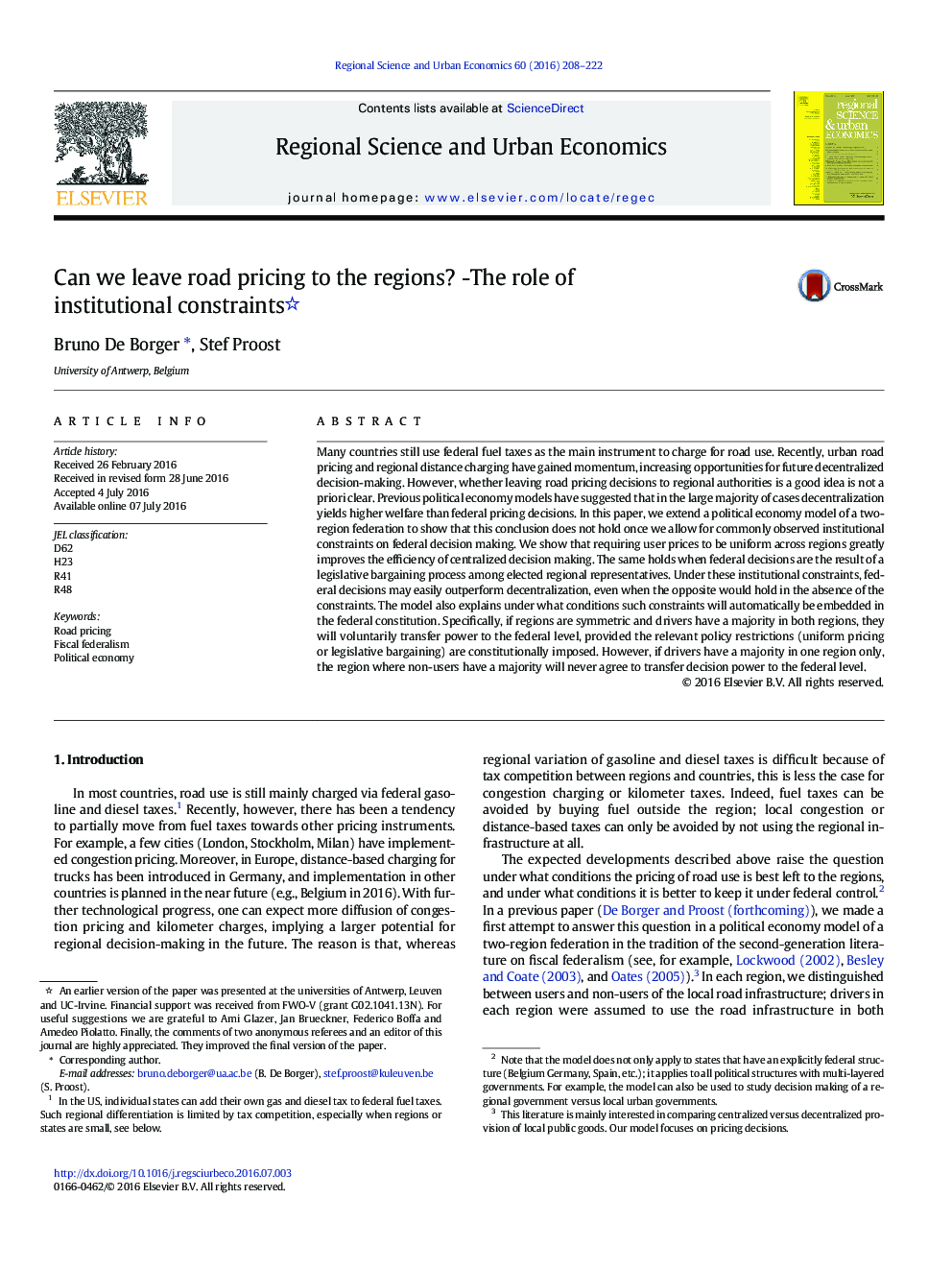| کد مقاله | کد نشریه | سال انتشار | مقاله انگلیسی | نسخه تمام متن |
|---|---|---|---|---|
| 983640 | 1480534 | 2016 | 15 صفحه PDF | دانلود رایگان |
• We study the role of institutional constraints in deciding whether road pricing can be left to regional authorities.
• The two-region model allows for heterogeneity within and between regions.
• Both uniform pricing restrictions and decisions by legislative bargaining improve the performance of centralized decisions.
• Under these restrictions, centralized decision-making often yields higher welfare than decentralized decisions.
Many countries still use federal fuel taxes as the main instrument to charge for road use. Recently, urban road pricing and regional distance charging have gained momentum, increasing opportunities for future decentralized decision-making. However, whether leaving road pricing decisions to regional authorities is a good idea is not a priori clear. Previous political economy models have suggested that in the large majority of cases decentralization yields higher welfare than federal pricing decisions. In this paper, we extend a political economy model of a two-region federation to show that this conclusion does not hold once we allow for commonly observed institutional constraints on federal decision making. We show that requiring user prices to be uniform across regions greatly improves the efficiency of centralized decision making. The same holds when federal decisions are the result of a legislative bargaining process among elected regional representatives. Under these institutional constraints, federal decisions may easily outperform decentralization, even when the opposite would hold in the absence of the constraints. The model also explains under what conditions such constraints will automatically be embedded in the federal constitution. Specifically, if regions are symmetric and drivers have a majority in both regions, they will voluntarily transfer power to the federal level, provided the relevant policy restrictions (uniform pricing or legislative bargaining) are constitutionally imposed. However, if drivers have a majority in one region only, the region where non-users have a majority will never agree to transfer decision power to the federal level.
Journal: Regional Science and Urban Economics - Volume 60, September 2016, Pages 208–222
